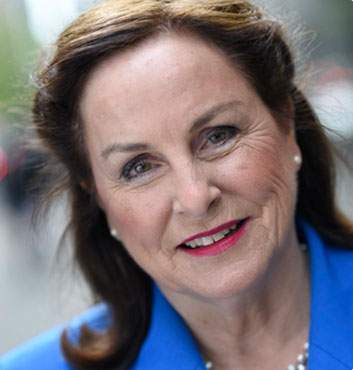An Adventure in Pre-school Lingo
I always thought I understood English, my native tongue—until I began to converse with nursery school teachers, that is. Now I’m beginning to think I should sign up for remedial tutoring. Maybe I wasn’t paying enough attention in Psychology 101, but whatever these educators have been telling me about my son’s behavior is way over my head.
I first came to this realization when I took my son Graham, then 2, to visit a class of 3-year-olds. We were shopping for nursery school programs for the next year, and this was Graham’s first taste of school. At 9 A.M. sharp, I was handed a cup of coffee and given the enrollee’s schedule for that morning. It read:
9: Arrival, greeting, and undressing
9-10: Gross motor activity
10-10:30: Meeting and singing, circle time
10:30-10:40: Snack
10:40-10:45: Wash up, clean cups
10:45-11: Rest, story time
11-11:45: Free play, art manipulative table, small group skill work
11:45-11:55: Clean-up time
11:55-Noon: Dressing, dismissal
Clean-up was easy to understand. But undressing? A manipulative table? This sounded more like a massage parlor than a preschool.
Graham, not the shy and retiring type, wasn’t content to sit on the sidelines and observe. He put his favorite companion, Snoopy (a transitional object in the parlance of the teacher’s aide), down the slide and dove after him.
“Your child has no problems with gross motor activity,” commented the head teacher. Huh?
When Graham and the other toddlers skipped around the floor to piano tunes, the same teacher observed, “He doesn’t suffer from separation anxiety and has no socialization problems. He is social, but not too autonomous,” Oh. I thought he was just a kid having fun.
He and another child practically swept the boards off the floor in the “housekeeping corner,” and the teacher told me, “He parallel plays well.” All I had noticed was how, much he likes to imitate mommy, complete with signs of exertion.
When he, the guest, poured juice at snack time for all the “host” children and then sat down to drink it with them, I was told he was “gaining self-confidence in self-expression.” His “adaptive behavior,” the teachers said, was excellent. To me, he was being a bit pushy, I asked where the desks were and was quickly corrected. “Oh, you mean the work stations.” Now I was really starting to feel like a foreigner.
Was it just this one pre-school? As it turned out, no. By the time Graham and I had finished visiting four other schools, my head was spinning with all the psychobabble—and I was beginning to worry that my honest and forthright child might start speaking with a forked tongue, his every gesture scrutinized and given some high-falutin’ interpretation.
Perhaps this new lingo was just another example of our tendency to euphemize everyone. After all, housewives are now domestic managers, farmers are agricultural engineers, and Dr. Frank Field is no longer the weatherman, but a meteorologist.
And my son? Well, he’s no longer a kid in school, he’s an educational apprentice. I don’t know whether he’s getting a good education, but my vocabulary certainly has expanded— enough to make me “social, but not too autonomous, anyway.”

Wesley Cullen Davidson
Wesley Cullen Davidson is an award-winning freelance writer and journalist specializing in parenting. Currently, she is targeting her writing about recovery to parents whose children have substance abuse disorders.